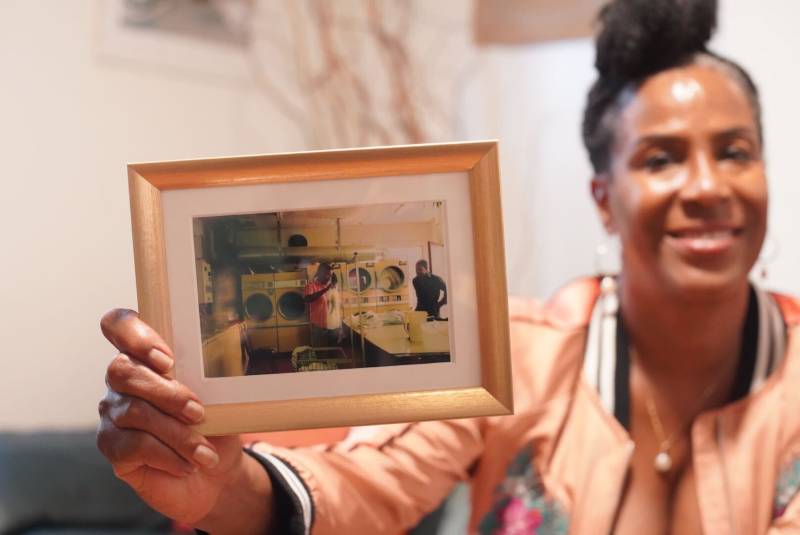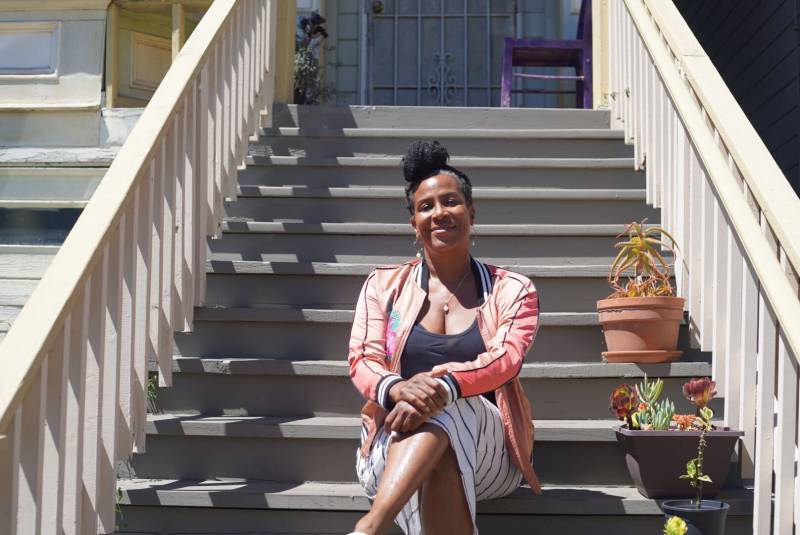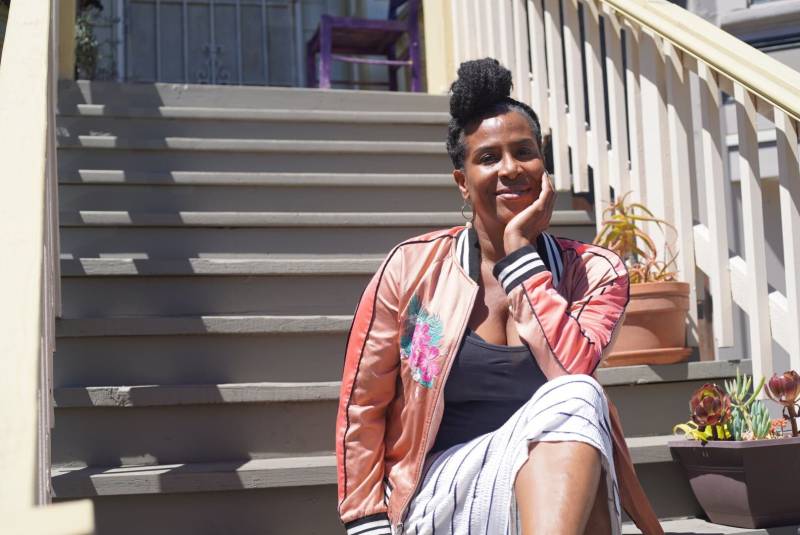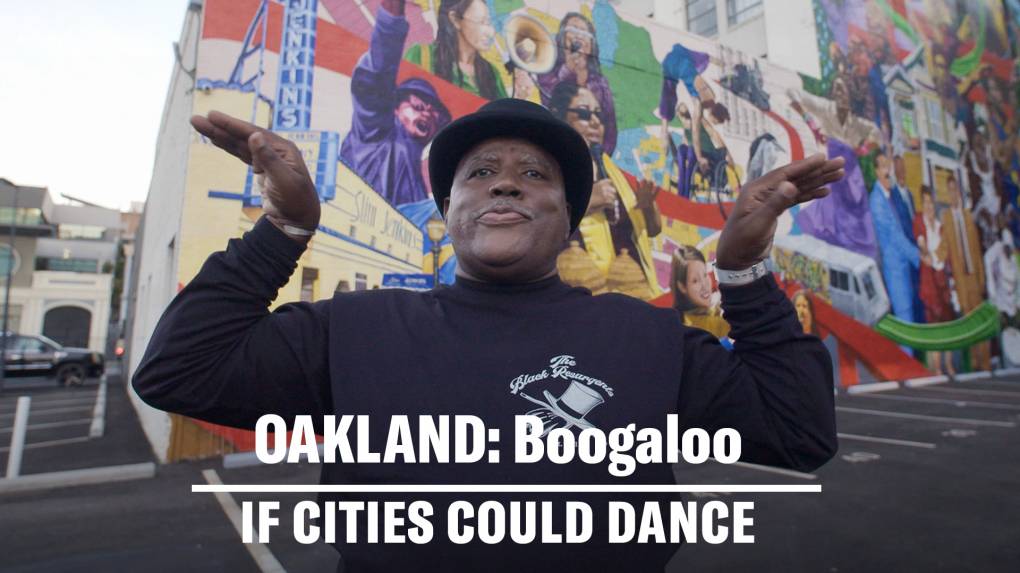Inside of a classic Queen Anne Victorian in West Oakland, photographer Traci Bartlow displays beautifully framed images of the people who shaped hip-hop culture here in the Bay Area, and across the nation.
Her exhibition, Oakland Picture Lady: Tales of the 90’s Girl, features photos of Outkast and Queen Latifah, Busta Rhymes and ODB, alongside images of the Luniz and Shock-G, as well as E-40 and The Click.
While the photos tell a story about what life was like in growing up in Oakland, it’s her house that tells the complex story of multiple generations of Black folks, land ownership and community appreciation.
Traci is the owner of B-Love’s Guesthouse, which is a photography museum and a boutique hotel. With its picturesque front porch and flourishing garden in the back, the building features seven different rooms that folks can rent.

An Ailey School graduate turned Emmy-winning dancer and choreographer, Traci fell in love with the arts through what she experienced in her neighborhood as a child. Block parties and family functions introduced her to her love of dance.
Born and raised in East Oakland, she also saw firsthand the importance of a neighborhood hub by watching the multiple ways people would use her mother’s washhouse. It wasn’t just a laundromat but a corner store, a place to get your prom dress made or pick up your Avon order.
She acquired her current home from the late Eddie Mae Holmes, a Black woman who once owned multiple properties in West Oakland. And Traci envisioned using the space for the purposes of artistic expression and community gatherings, including showcasing her work.

Now B-Love’s Guesthouse stands as a home for hip-hop history and a safe haven for folks to come together.
This week we take a tour of the property and walk down memory lane through her photos. If you’re interested after listening to this episode, you can take a tour too.
Below are lightly edited excerpts of my conversation with Traci Bartlow.
Pen: Just a few blocks from the women of the Black Panther Party mural and West Oakland BART station is Traci Bartlow’s home and hotel, B-Love’s Guesthouse. It’s on a residential street with lots of history.
Traci: I acquired the house in 2007 from a team of people that would buy houses, flip them, and then sell them. They bought the house from a woman named Eddie Mae Holmes. And Ms. Holmes was an African-American woman that came to West Oakland when she was 14 years old. And, through her family ownership, she acquired this house, this house on the corner. And in 1965, she had that apartment building around the corner built. On the lower level of the apartment building, she had Holmes Barber Shop. So Ms. Holmes is one of those black women in the community that was providing in so many different ways for everyone.
Pen: About 15 years ago, Traci converted her home into a guesthouse. People can choose from one of seven rooms for an overnight stay. And at the same time, folks can enjoy the framed photos from Traci’s archives. Her photos are a time machine, instantly transporting me back to the East Oakland that I knew as a youth.




